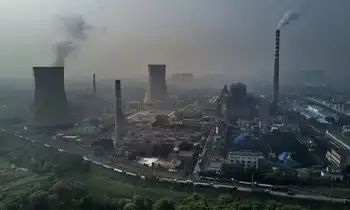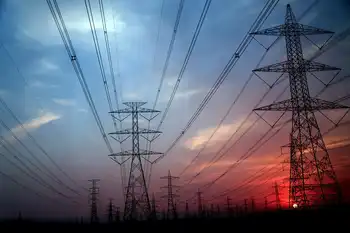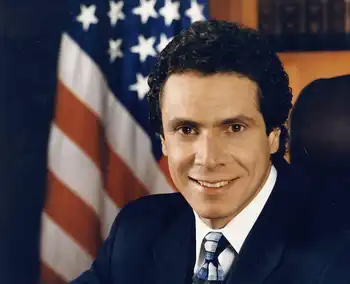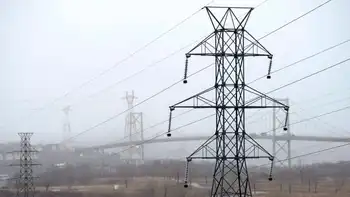U.S. greenhouse gas bill should raise red flags in Canada
The climate-change bill, passed by only seven votes in the U.S. House 10 days ago, is 1,200 pages long, has more than 100 amendments and was cleared by eight sub-committees.
This is why vested interests, such as America's coal-fired electricity industry, have lawyers and lobbyists on the payroll - to get them what they want, and tell them what it means.
What it means at the end of the day is that the electricity industry can live with the cap-and-trade provisions of the energy bill, because Washington is paying them to clean up their act. Nearly half the cap-and-trade permits will be distributed to public utilities, free of charge, as they will be to private industry.
It also means America is back in a leadership role on climate change, and as on any other global issue, that's essential to progress.
Having boycotted Kyoto, the U.S. House is now accepting binding targets to reduce greenhouse-gas emissions by 17 per cent below 2005 levels by 2020, and up to 80 per cent by 2050.
If the U.S. Senate adopts a bill, with a conciliated House version and the president's signature in the fall, then Obama can take it to the annual UN Conference of Parties, the so-called COP15 in Copenhagen in December, which hopes to adopt a post-Kyoto framework.
Obama was so excited by the passage of the Waxman-Markey bill that he scrapped a message on health-care reform that he'd already taped for his weekly radio and Internet address, and did one on climate change instead.
But then, as he soon discovered, the devil is in the details. Just recently, he delayed a golf game - the president can change his starting time - to call reporters into the Oval Office and warn against protectionist provisions in the climate-change bill.
"At a time when the economy worldwide is still deep in recession, and we've seen a significant drop in global trade," Obama declared, "I think we have to be careful about sending any protectionist signals out there."
Huh? Well, as the New York Times reported: "The House bill contains a provision, inserted in the middle of the night before the vote Friday (July 3), that requires the president, starting in 2020, to impose a 'border adjustment' - or tariff - on certain goods from countries that do not limit their global-warming emissions. The president can waive the tariffs only if he receives the explicit permission of Congress."
Quite apart from trade sanctions, this raises issues of extraterritorial sovereignty, and sees the legislature tying the hands of the head of the executive branch of the U.S. government.
So having praised the energy bill one day, Obama threatened to veto it the next, essentially asking the Senate to fix it for him.
As it stands now, the bill raises all kinds of red flags and alarm bells in Canada. If Canada were unable to meet emission-reduction targets because of the Alberta oil sands, does that mean manufactured goods from Ontario and Quebec could be hit with tariffs at the U.S. border?
You can see where this is going, and it has nothing to do with climate change.
But on the actual goals for GHG reductions, Canada is well aligned with the U.S. bill's target of reducing emissions. The current Canadian target is a 20-per-cent reduction by 2020, and between 50 and 70 per cent by 2050, a more ambitious target in the medium term, and reconcilable in the long term.
Of course, no legislation is ever deemed to be adequate by the environmental lobby.
As flawed as the U.S. House bill is, it restores U.S. leadership on climate change, sets achievable targets and proposes a cap-and-trade regime.
That might be only modest progress when compared with Obama's campaign rhetoric about saving the planet.
But it's a beginning.
Related News
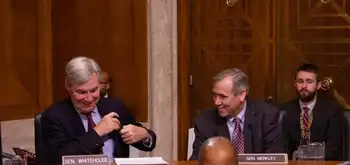
Congressional Democrats push FERC to act on aggregated DERs
WASHINGTON - The Monday letter from Congressional Democrats illustrates growing frustration in Washington over the lack of FERC action on multiple power sector issues.
Last May, after the FERC technical conference, 16 Democratic Senators wrote to then-Chairman Kevin McIntyre urging him to develop guidance for grid operators on aggregated DERs.
In July, McIntyre responded, saying that FERC was "diligently reviewing the record," but the commission has taken no action since.
Since then, "DER adoption and renewable energy aggregation have continued to grow," House and Senate lawmakers wrote in their identical Monday letters, "driven not only by state and federal policies, but consumer interest…

